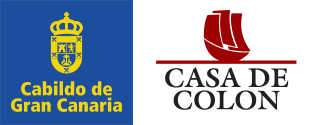Consideraciones en relación con la colonización protohistórica de las Islas Canarias / Considerations in relation with the Protohistoric colonization of the Canary Islands
Resumen
Tras el descubrimiento en El Bebedero (Lanzarote) de los primeros elementos materiales adscritos al ámbito cultural romano, se han recuperado otros artefactos de procedencia fenicio-púnica en Buenavista (Lanzarote) y restos mediterráneos en la barra litoral de La Graciosa. Esos registros materiales y las amplias series de dataciones asociadas permiten retrasar el comienzo de la colonización de las Islas Canarias al inicio del I milenio a.n.e., situándola en el extremo oriental del archipiélago (Lanzarote/La Graciosa), fenómeno que corresponde con un momento en el que se está produciendo la culminación de la colonización de las islas mediterráneas.
After the discovery in the first material remains of the Roman culture in El Bebedero (Lanzarote), other Phoenician-Punic artifacts have been retrieved in Buenavista (Lanzarote) together with Mediterranean remains along the stretch of coastline on La Graciosa. These material remains and the broad range of associated dates of the same allow for us to set back the beginning of colonisation in the Canary Islands to the start of the first millennium B.C., thereby situating the Eastern part of the Archipelago (Lanzarote/La Graciosa) on a time-line similar to that of the colonisation of the Mediterranean islands.








